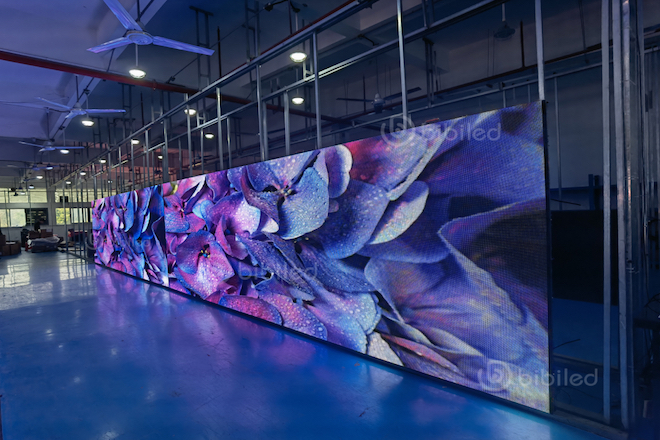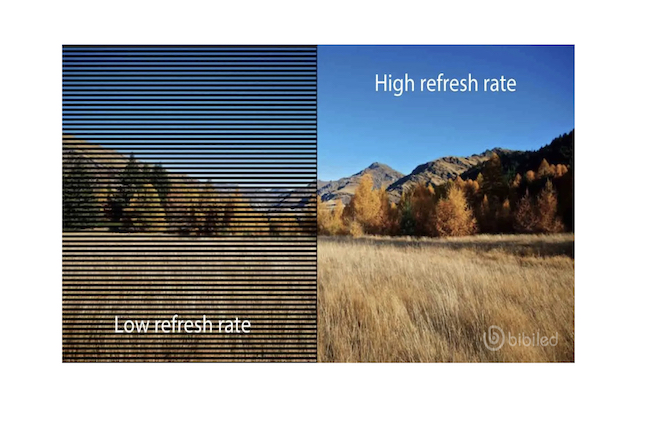What is the refresh rate?
How does the refresh rate affect the visual effects of LED displays?
What is the best refresh rate for an led screen
Do you know how to increase the refresh rate?
What driver IC should we use to get a high refresh rate led screen?

The refresh rate is one of the important data in the LED display screen specification sheet; why do people pay so much attention to the refresh rate? What does this have to do with the LED display?
1. What is the refresh rate?
The refresh rate measures the number of times an image is redrawn on the screen per second; the image formed on the screen results from each LED being continuously updated hundreds of times to be invisible to the human eye.
Its international measurement system is nuclear magnetic, often abbreviated as “Hz”.
2. How does the refresh rate affect the visual effects of LED displays?
If your LED screen spec sheet says that the refresh rate is 1920Hz, the image is refreshed 1920 times in one second; if the refresh rate is higher than 1920Hz, we will consider it a high refresh rate, which can be applied to most LED display screens.
The higher the refresh rate, the more images the LED display can play per second.
Let’s take a look at the led display screen difference between high refresh rate and low refresh rate:

If the refresh rate is too low, the LED display will shake when viewed by the human eye, and scan lines will appear when shooting through the camera.
Generally, the human eye requires a refresh rate of more than 300Hz, and the LED display screen will not feel jittery when viewed with the naked eye.
However, if you use a camera to shoot, according to the different settings of different cameras, generally at least 600Hz is required to capture the scan lines.
Therefore, high refresh can improve the display screen’s brightness and color life-like effect; we can detect it with a digital camera. If it is high refresh, the picture taken by the camera is very clear, without snowflakes and scan lines; this indicator is used in rental screens and TVs.
If a low-refresh LED display is used, it would repeatedly flicker when shooting with a mobile phone or camera in practical applications, and the black bars will lead to inconsistent images, making it impossible to capture the scene and display the picture, which is very unsuitable for events and advertisements.
3. What is the best refresh rate for the led screen?
Is a high refresh frequency better for led screens?
Generally, the range of 1920-3840Hz is desirable in the LED display screen; too low a refresh rate will affect the shooting and display effect, too high a refresh rate will affect the life of the LED display.
4. Do you know how to increase the refresh rate?
The driver IC mainly determines the refresh rate selects high-end hardware – the driver IC and adopts high refresh mode.
Display control system software is important for refresh rates, such as Novastar or Brompton.
Excellent PCB design affects the new rate, uses more driver ICs, and increases data buffer processing capacity.
Considering the grayscale parameters, the higher the refresh rate will easily affect the life of the LED, and the high-quality LED display will withstand the impact of a high refresh.
5. What driver IC should we use to get a high refresh rate screen?
- ICs that can easily reach 3840Hz include ICN2153, MBI5252, etc., but grayscale brightness will affect them.
- Better choice: MBI5153 MBI5124, not only get a high refresh rate but also a better grayscale, adjust the brightness; grayscale is not affected.
Conclusion:
The above explains the refresh rate of the LED display screen. We present the concept of refresh rate, the role of refresh rate, how to choose the best refresh rate, and how to increase the refresh rate. We hope it will be helpful to you.
If you have any questions about the LED display, you can leave a message below or email us, and we will answer you as soon as possible.
